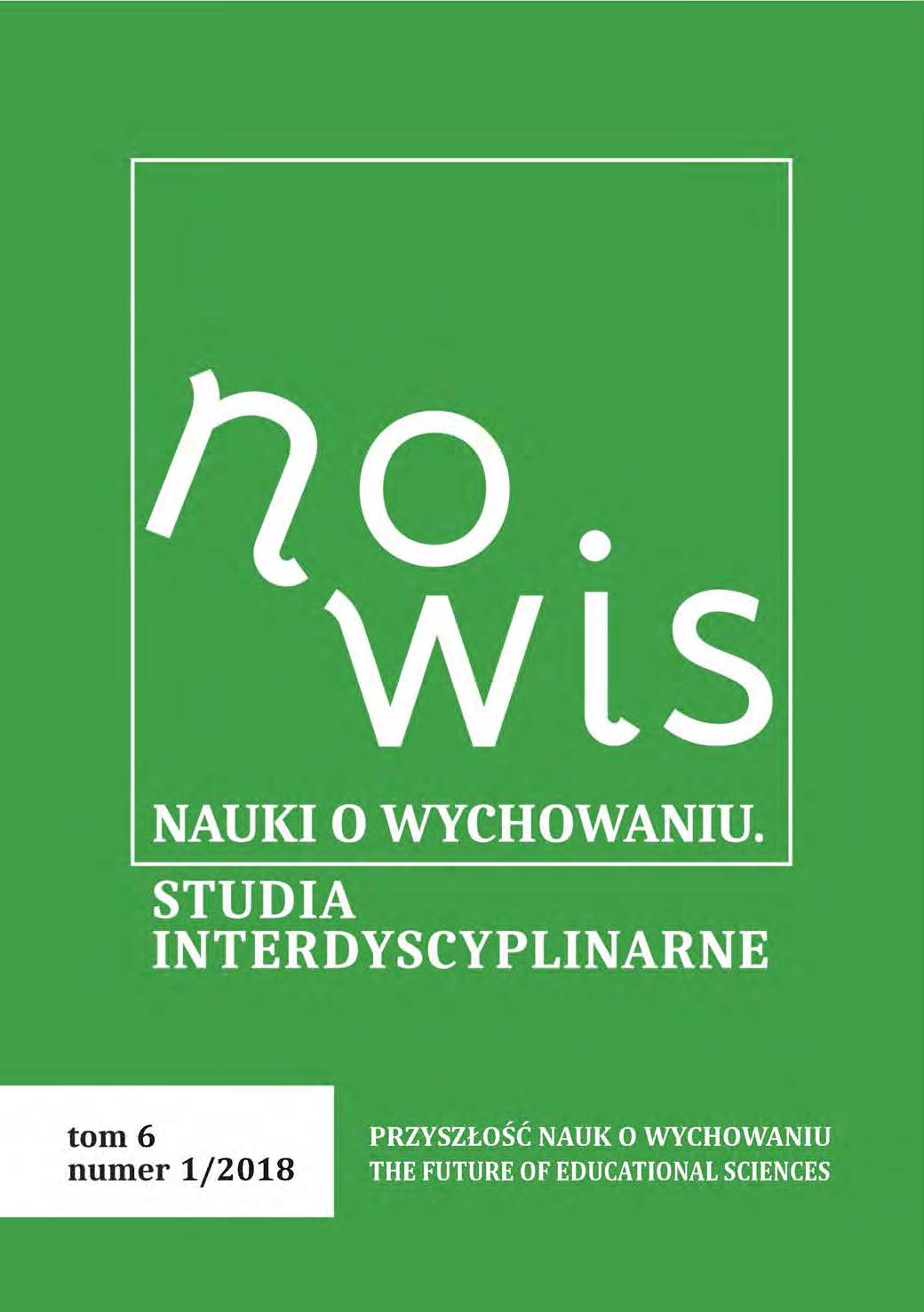Selekcyjna funkcja południowoafrykańskiego systemu edukacji w czasach apartheidu (1948–1994)
DOI:
https://doi.org/10.18778/2450-4491.06.09Słowa kluczowe:
Republika Południowej Afryki, edukacja, rasizm, zamknięcie społeczne, apartheid, dyskryminacja, nierównościAbstrakt
Artykuł stanowi analizę selekcyjnej funkcji szkolnictwa w Republice Południowej Afryki w okresie apartheidu (1948–1994). Zawarto w nim rozważania dotyczące praktyk segregacji rasowej i roli szkolnictwa w odtwarzaniu zróżnicowania społecznego w południowoafrykańskiej edukacji. Analizy osadzone są w teoretycznych koncepcjach zamknięcia społecznego. Odnoszą się one do praktyk selekcyjnych oraz zjawisk dyskryminacji obecnych w kolejnych etapach rozwoju systemu edukacji w RPA.
Bibliografia
Atmore E. (2013) Early childhood development in South Africa – progress since the end of apartheid, “International Journal of Early Years Education”, 21 (2–3).
Google Scholar
Austin R. (1975) Racism and apartheid in southern Africa: Rhodesia, Paris, The Unesco Press.
Google Scholar
Balicki J. (1980) Afrykanerzy, Afrykanie, Apartheid, Warszawa, Wydawnictwo „Iskry”.
Google Scholar
Behr A. L. (1988) Education in South Africa. Origins, Issues and Trends: 1652–1988, Pretoria, Cape Town: Academica.
Google Scholar
Bunting I. A. (2006) The Higher Education Landscape Under Apartheid w: Transformation in Higher Education. Global Pressures and Local Realities, N. Cloete, P. Maassen, R. Fehnel, T. Moja, T. Gibbon, H. Perold (eds.), Dordrecht, The Editors. Nico Cloete.
Google Scholar
Cele M. (2009) South Africa. Post-Apartheid Higher Education: The Role and Challenges Facing Student Activists w: Youth and Higher Education in Africa: The Cases of Cameroon, South Africa, Eritrea and Zimbabwe, D. P. Chimankikire (ed.), Dakar, http://www.codesria.org/spip.php?article418&lang=en
Google Scholar
Christie P., Collins C. (1982) Bantu Education: apartheid ideology or labour reproduction?, “Comparative Education”, 18 (1): 59–75.
Google Scholar
Christie P., Gaganakis M. (1989) Farm Schools in South Africa: The Face of Rural Apartheid, “Comparative Education Review”, 33 (1): 77–92.
Google Scholar
Christie P., Gordon A. (1992) Politics, Poverty and Education in Rural South Africa, “British Journal of Sociology of Education”, 13 (4): 399–418.
Google Scholar
Collins R. (1979) The Credential Society. An Historical Sociology of Education and Stratification, New York, Publisher: Academic Press.
Google Scholar
Davenport T. R. H. (1991) South Africa. A Modern History, London, Macmillan.
Google Scholar
Du Pisani T., Plekker S. J., Dennis C. R., Strauss J. P. (1991) Education and Manpower Development, no 11, Bloemfontein.
Google Scholar
Farsakh L. (2015) Apartheid, Israel and Palestinian Statehood w: Israel and South Africa. The Many Faces of Apartheid, I. Pappé (red.), London, Publisher: Zed Books.
Google Scholar
Giliomee H., Schlemmer L. (1989) From Apartheid to Nation-Building, Cape Town, Published by Oxford University Press.
Google Scholar
Harber C. (1989) Politics in African Education, London, Macmillan.
Google Scholar
Herman H. D. (1995) School-leaving Examinations, Selection and Equity in Higher Education in South Africa, “Comparative Education”, 31 (2): 261–274.
Google Scholar
Higgins J. i in. (2016) Academic Staffing w: South African Higher Education Reviewed. Two Decades of Democracy, Pretoria, Council on Higher Education.
Google Scholar
Horrell M. (1963) African Education. Some Origins, and Development until 1953, Johannesburg, South African Institute of Race Relations.
Google Scholar
Horrell M. (1964) A Decade of Bantu Education, Johannesburg, Institute of Race Relations. South African Institute of Race Relations.
Google Scholar
Horrell M. (1968) Bantu Education to 1968, Johannesburg, South African Institute of Race Relations.
Google Scholar
Horrell M., Horner D., Hudson J. (1975) A Survey of Race Relations in South Africa, Johannesburg, South African Institute of Race Relations.
Google Scholar
Johnson R. (1982) Education: Keystone of Apartheid, “Anthropology and Education Quarterly”, 13 (3): 214–237.
Google Scholar
Mabokela R. O. (2000) Voices of Conflict. Desegregating South African Universities, New York, Routledge.
Google Scholar
Macquarrie J. W. (1960) Race and Education in South Africa, “The Phi Delta Kappan”, 41 (4).
Google Scholar
Melosik Z. (1995) Współczesne amerykańskie spory edukacyjne. Między socjologią edukacji a pedagogiką postmodernistyczną, Poznań, Wydawnictwo Naukowe Uniwersytetuim. Adama Mickiewicza.
Google Scholar
Melosik Z. (2002) Uniwersytet i społeczeństwo. Dyskursy wolności, wiedzy i władzy, Poznań, Wydawnictwo Wolumin.
Google Scholar
Mesthrie R. (2004) South Africa: a sociolinguistic overview w: Language in South Africa, R. Mesthrie (ed.), Cambridge, Cambridge University Press.
Google Scholar
Moore R. (2004) Education and Society. Issues and Explanations in the Sociology of Education, Cambridge, Publisher: Polity.
Google Scholar
Motala S. (1995) Surviving the System – a critical appraisal of some conventional wisdoms in primary education in South Africa, “Comparative Education”, 31 (2).
Google Scholar
Murphy R. (1988) Social Closure. The Theory of Monopolization and Exclusion, Oxford, Clarendon Press.
Google Scholar
Parkin F. (1974) Strategies of Social Closure in Class Formation w: The Social Analysis of Class Structure, F. Parkin (ed.), London, Tavistock.
Google Scholar
Parkin F. (1979) Marxism and Class Theory. A Bourgeois Critique, New York, Columbia University Press.
Google Scholar
Sawisz A. (1987) Strategie i techniki wykluczania (kilka uwag na temat koncepcji «zamknięcia» w socjologii), „Studia Socjologiczne”, 3–4 (106–107).
Google Scholar
Smith R. D. (2000) Ecclesiastical Racism and the Politics of Confession in the United States and South Africa w: Race and Reconciliation in South Africa. A Multicultural Dialogue in Comparative Perspective, W. E. Van Vugt, G. D. Cloete (eds.), Lanham, Lexington Books.
Google Scholar
Spaull N. (2013) Poverty and privilege: Primary school inequality in South Africa, “International Journal of Educational Development”, 33 (5).
Google Scholar
Śliwerski B. (2001) Program wychowawczy szkoły, Warszawa, Wydawnictwa Szkolne i Pedagogiczne.
Google Scholar
Taylor N. (1989) Failing at the First Hurdle. Initial encounter with the formal system of African Education in South Africa, EPU Research Report, Johannesburg, Johannesburg,University of the Witwatersrand.
Google Scholar
Tejani R. (2017) Professional apartheid: the racialization of US law schools after the global economic crisis, “American Ethnologist”, 44 (3).
Google Scholar
Tihanyi K. (2006) Blending in the Rainbow Nation. The Racial Integration of Schoolsand Its Implication for Reconciliation in Post-Apartheid South Africa, Lanham, Lexington Books.
Google Scholar
Turner J. H. (2004) Struktura teorii socjologicznej, tłum J. Szmatka, Warszawa, Wydawnictwo Naukowe PWN.
Google Scholar
Unterhalter E. (1991) Changing aspects of reformism in bantu education 1953–89 w: Apartheid Education and Popular Struggles, E. Unterhalter, H. Wolpe, T. Botha, S. Badat, T. Dlamini, B. Khotseng (eds.), London.
Google Scholar
Van den Berghe P. L. (1966) Racial Segregation in South Africa: Degrees and Kinds, „Cahiers d’études africaines”, 6 (23).
Google Scholar
Van den Berghe P. L. (1967) Race and Racism. A Comparative Perspective, New York, Wiley & Sons.
Google Scholar
Wangenge-Ouma G. (2012) Tuition fees and the challenge of making higher education a popular commodity in South Africa, “Higher Education”, 64 (2).
Google Scholar
Weber M. (1968) Economy and Society. An Outline of Interpretive Sociology, G. Roth, C. Wittich (ed.), New York, Bedminster Press.
Google Scholar
Welsh D. (2009) The Rise and Fall of Apartheid, Johannesburg, Jonathan Ball.
Google Scholar
Wolpe H., Unterhalter E. (1991) Reproduction, reform and transformation: the analysis of education in South Africa w: Apartheid Education and Popular Struggles, E. Unterhalter, H. Wolpe, T. Botha, S. Badat, T. Dlamini, B. Khotseng (eds.), London, ZED.
Google Scholar
Pobrania
Opublikowane
Jak cytować
Numer
Dział
Licencja

Utwór dostępny jest na licencji Creative Commons Uznanie autorstwa – Użycie niekomercyjne – Bez utworów zależnych 4.0 Międzynarodowe.





 Strona czasopisma, prowadzona przez Zespół redakcyjny NOWiS na platformie Index Copernicus:
Strona czasopisma, prowadzona przez Zespół redakcyjny NOWiS na platformie Index Copernicus: 





